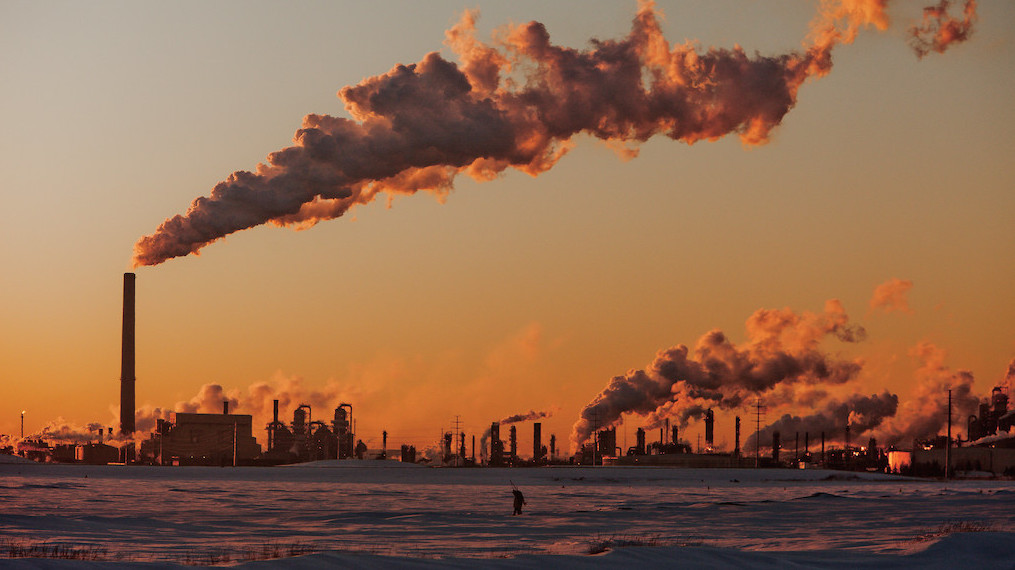Canada has by far the worst G7 climate record and will remain the laggard until we start a managed phase out of the oilsands. Prime Minister Justin Trudeau knows they are the elephant in the room, but is intimidated by big oil and the predictable explosive reaction of the Alberta and Saskatchewan governments to even mention it.
He wasn’t always so shy. In 2017, Trudeau told a town-hall meeting in Peterborough that, “We can’t shut down the oilsands tomorrow. We need to phase them out. We need to manage the transition off of our dependence on fossil fuels. That is going to take time.”
That is exactly what is needed. It would take time for Alberta’s oil workers and the communities they live in to transition to a post-oil economy in a well-supported plan with help from the rest of Canada. The alternative is to wait until others stop buying Alberta’s bitumen that is among the world’s most carbon-intensive oil and leaving oil workers to fend for themselves in an unmanaged free fall.
Realizing he had stepped on a political beehive, Trudeau beat a hasty retreat. Big oil and Alberta politicians of all political stripes demanded he eat his words. Trudeau assembled his cabinet behind him and said, “I misspoke. I didn’t mean it.”
Six weeks later, Trudeau told big oil executives in Houston that, “No country would find 173 billion barrels of oil in the ground and just leave them there.” He should have added that 97 per cent of those barrels are in Alberta’s oilsands. According to renowned NASA scientist James Hanson, burning all of them would single-handedly raise global warming above tolerable levels.
COVID-19 has taught us to direct efforts at pandemic hot spots. This is needed for the climate crisis, too. Canada’s carbon hot spot is on the supply side. Carbon taxes fail to target Canada’s main problem because they are more from the production of oil and gas, than their demand in Canada. As the world moves off oil and gas, Canadians must quickly change our mindset. Being a resource-exporting country is our past, not our future.
At U.S. President Joe Biden’s climate summit last week, Canada promised to do better and cut carbon pollution emissions from its 2005 level by 40 to 45 per cent by 2030. Why should anyone believe the promise when all Canada’s previous ones have been hot air?
At the international negotiations that became the Kyoto Protocol, Canada promised to cut its emissions by six per cent by 2008 to 2012. Instead, they skyrocketed by 21 per cent by 2005. To hide its failure, Canada moved the goalposts from 1990 to 2005 as the new benchmark. The U.S. joined suit, and Japan kicked the can even further down the road to 2013. But Britain, France, Italy and Germany — the other G7 countries stuck to 1990 as the base year to measure emission cuts.
Despite many promises, Canada’s emissions have not budged from their 2005 peak. In contrast, the U.S. and Japan’s climate pollution is roughly at their 1990 levels. The EU’s emissions fell by 25 per cent, while Britain’s fell an impressive 40 per cent.
With 0.48 per cent of the world’s population, Canada emits 1.5 per cent of the global total, three times the per capita global average. The production of oil and gas is Canada’s highest-emitting sector — a quarter (26 per cent) of Canada’s total and is forecast to grow with rising oil output.
An Environmental Defence report showed that for Canada to “meet its Paris pledge, the collective emissions of British Columbia, Manitoba, New Brunswick, P.E.I. and Nova Scotia, plus the three territories, would have to disappear entirely by 2030 just to make room for the growth in oil and gas emissions.”
Canada can’t reach its new emissions target in 8.5 years unless it curbs oil and gas production. You can’t cut total emissions by almost half while allowing your biggest source to grow. Why should Canadians cut their emissions to make room for big oil to grow theirs? Only 55,853 people are directly employed in oil and gas, just one-third of one per cent of all jobs in Canada.
Canada will promise again at the June G7 meeting in England and again not be believed. Most Albertans know they must get off oil and gas. It’s time to acknowledge the challenge and start discussing how the rest of Canada can financially support Albertans and Saskatchewanians to make the transition.
Gordon Laxer is professor emeritus of political economy at the University of Alberta and author of After the Sands. Energy and Ecological Security for Canadians. This op-ed originally appeared in the Toronto Star.
Image credit: kris krüg/Flickr



